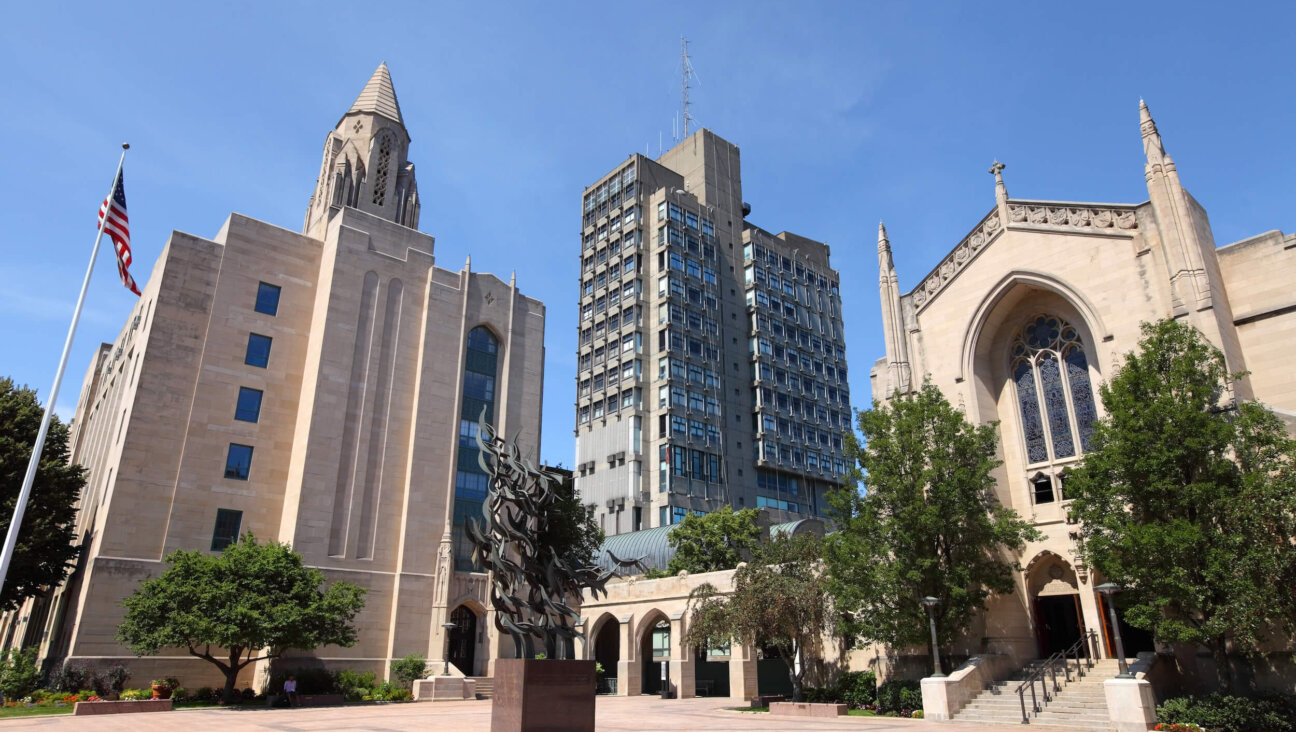Courses Attract Christians
BERLIN — Educational courses about Judaism were, for some, a prime attraction at a massive Christian gathering in Germany.
“Church Days Convention,” a three-day conference featuring more than 3,200 events, was organized by Germany’s Protestant and Catholic churches, and drew an estimated 200,000 “pilgrims” to Berlin from across the country.
Starting May 28, the event — which takes place every two years in different cities — included numerous offerings on Christian-Jewish relations, presented by top figures in Germany’s Jewish cultural, political and educational scenes.
At a mini-university on Judaism, coordinated by Albrecht Lohrbaecher, participants immersed themselves — however briefly — in basic Judaism, Jewish philosophy on war and peace, Jewish feminism and Mideast politics. There were also walking tours of the historic Jewish quarter of Berlin.
Presenters included Rabbi Yitzchak Ehrenberg of Berlin; Rabbi Andreas Nachama, a historian who heads the “Topography of Terror” archive and memorial in Berlin, and Hermann Simon, director of the Centrum Judaicum Foundation.
A featured guest from abroad was Rabbi David Rosen, international director of interreligious affairs for the American Jewish Committee, who spoke about relations between Jews, Muslims and Christians after September 11.
It was standing room only at one lecture led by Ernst Ludwig Ehrlich, honorary president of B’nai B’rith Europe. Some 70 people, almost all Christian, crowded into a lecture room at Berlin’s Technical University for his mini-course on Judaism.
At Ehrlich’s lecture, visitors posed questions they might have been afraid to ask: “Why don’t Jews do missionary work?”, “How do you view messianic Jews?” and “Does it make sense for nonreligious Jews outside Israel to remain Jewish?”
“Naturally it makes sense, because they have 2,000 years of history here,” Ehrlich — who lives with his wife, Sylvia, in Basel, Switzerland — responded to the last question.
Ehrlich’s lecture received long applause, and several participants stayed afterward to ask more questions.
Many of the conference’s participants “normally have little or no contact with Jews,” said Iris Weiss, a member of Berlin’s Jewish community who has been involved in Jewish-Christian dialogue for more than 20 years. “Here, they have the chance to get basic information from Jews about Judaism.”
Attendees’ motivations vary, she said. Many “recognize that they have a major deficit in their knowledge of Judaism” and want to expand their knowledge, Weiss said. Others, she said, “are only interested in Judaism to the extent that they can ‘milk’ its connection to Christianity,” and “some think if they understand Judaism better, they will understand how the Holocaust could have happened.”















